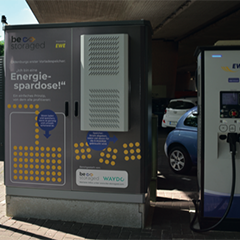The UK is currently faced with the same chicken or egg scenario as Germany, both have announced a national target of expanding e-mobility, but how is it working out so far? Electric cars will only be purchased if the charging infrastructure is large enough to support them. And yet, the charging infrastructure will not be built if there are no electric cars on the road, which would leave it to deteriorate.
The British automotive industry also recognizes that we’re currently racing to keep up with technological progress. At present, the Chinese manufacturers BYD and BAIC are the world leaders in e-mobility. Against all odds, Tesla is currently in third place in the global ranks, with BMW in fourth place followed by VW.
Researchers are predicting an annual growth rate of 55 percent worldwide, convincing even venerable manufacturers to rethink their designs. Jaguar Land Rover is shaping the future of e-mobility with its new I-Pace, the group’s first all-electric vehicle, with charging specialist Mennekes as the exclusive supplier of the required wallboxes. Starting in 2020, every new Jaguar Land Rover model series will also include an electric version of the vehicle.
Investments are also being made by the British government, as announced this past February, as it is setting aside over 6 million pounds to fund the installation of around 300 charging stations and 46 high-speed charging stations for taxis — a prestigious move on the government’s part which could trigger a multiplying effect.
Additionally, British milk delivery service Milk & More recently purchased 200 electric vehicles from StreetScooter — a subsidiary of German post and parcel delivery service Deutsche Post — whose products are on the path to becoming international hot sellers.
The British government expects that by 2040, the majority of new cars and delivery vehicles sold in the UK will be electric. At the same time, some politicians are seriously considering no longer registering new vehicles with combustion engines starting in the same year.




























